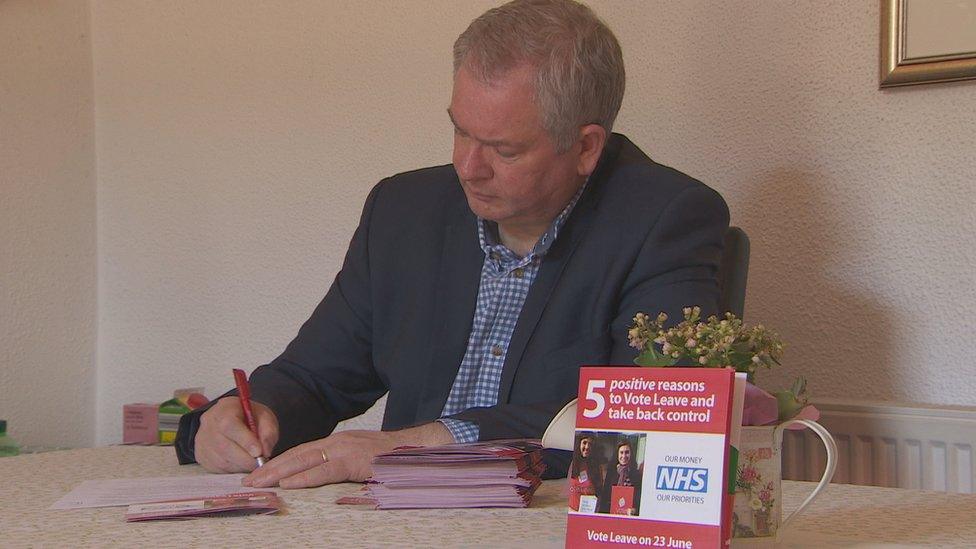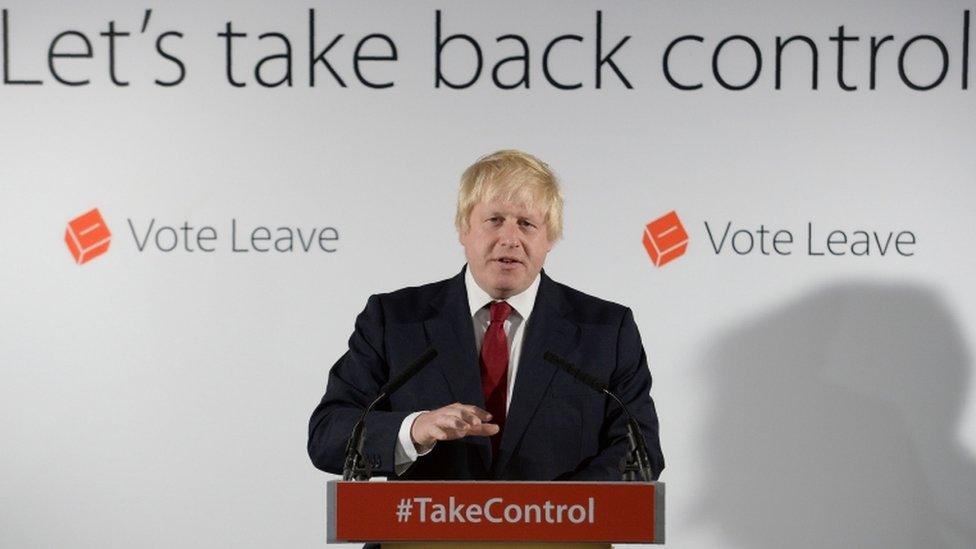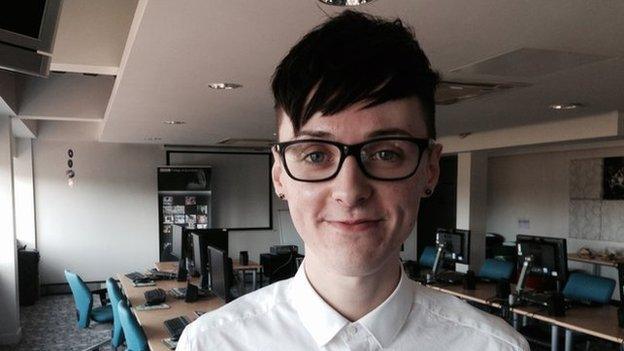Vote Leave claims 'unacceptable if true'
- Published

Tom Harris was the director of Scottish Vote Leave during the Brexit referendum
Vote Leave's former Scottish director has said allegations that it broke electoral law during the EU referendum would be "completely unacceptable" if true.
Tom Harris said he was "shocked" and "extremely disappointed" by the Electoral Commission's findings.
Vote Leave has claimed the commission's report is "wholly inaccurate" and politically motivated.
But Mr Harris defended the commission and said it was wrong to attack it.
Vote Leave has been fined £61,000 and referred to the police after the Electoral Commission said it exceeded its £7m spending limit by funnelling £675,315 through a separate pro-Brexit group called BeLeave.
The commission said it had "substantial evidence" that Vote Leave and BeLeave committed "serious breaches of the law" by secretly working together in order to get around campaign spending limits.
BeLeave founder Darren Grimes has been fined £20,000 and referred to the police, along with Vote Leave official David Halsall.
The Vote Leave campaign, which was fronted by Boris Johnson and Michael Gove, won the contest to be the official Leave campaign in the 2016 referendum on whether Britain should stay in the European Union.

The national Vote Leave campaign was fronted by Boris Johnson
Mr Harris insisted he was "very proud" of the campaign run by the Scottish wing of the group, which he said spent only between £4,000 and £6,000 during the referendum campaign.
He told BBC Scotland that he did not want to prejudge the allegations against the national Vote Leave organisation, which he said was likely to be decided in court.
But he stressed: "If you're going to run any campaign, you obey the rules and you obey the law and you don't pick and choose which rules and laws you obey.
"You cannot go into any sort of campaign expecting to break the laws and break the rules and get away with it and that is only right".
He said the £675,000 said to have been funnelled through BeLeave was a "huge amount of money and I am shocked by it".

BeLeave founder Darren Grimes has been referred to police by the Electoral Commission
But he said he had not even heard of BeLeave before the Electoral Commission investigation started, and said Vote Leave had an "incredibly strict" policy of not colluding with other pro-Brexit organisations.
The former Labour MP also said he did not know whether claims that Vote Leave refused to cooperate with the commission's probe were true.
He said: "People not involved in these campaigns have got perfectly valid, legitimate questions to ask and Vote Leave should be making themselves available to answer those questions.
"If they haven't provided that resource to the Electoral Commission that's entirely unacceptable".
Mr Harris went on to say: "I respect and support the Electoral Commission. It is a serious body - we should take its findings seriously.
"If there are other stages still to go through - like the courts - justice will take its course. But you do not attack the people whose job given by parliament is to hold these campaigns to account."
'Refused to cooperate'
The Electoral Commission, which is the watchdog overseeing elections and spending by political parties, has referred Mr Grimes and Mr Halsall to the Metropolitan Police in relation to false declarations of campaign spending.
It has also handed over files "in relation to whether any persons have committed related offences" that fall outside the watchdog's remit.
The commission also accused Vote Leave of resisting the investigation, adding: "It has refused to cooperate, refused our requests to put forward a representative for interview, and forced us to use our legal powers to compel it to provide evidence."
A Vote Leave spokesman said the commission's report "contains a number of false accusations and incorrect assertions that are wholly inaccurate and do not stand up to scrutiny."
And he claimed that the "supposedly impartial commission is motivated by a political agenda rather than uncovering the facts."
The Electoral Commission hit back at allegations of political bias, saying: "We open investigations where the evidence justifies it, irrespective of the political views of the party or campaigner concerned."
It also insisted it had followed "due process" and had spent three months and made five attempts to interview Vote Leave representatives.